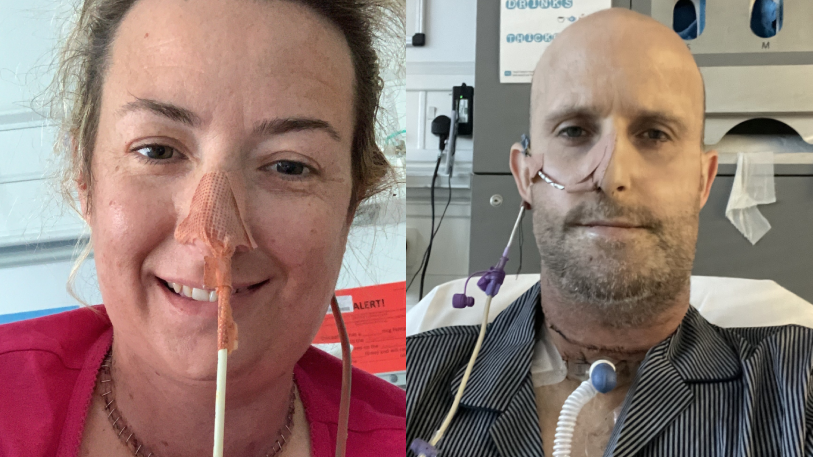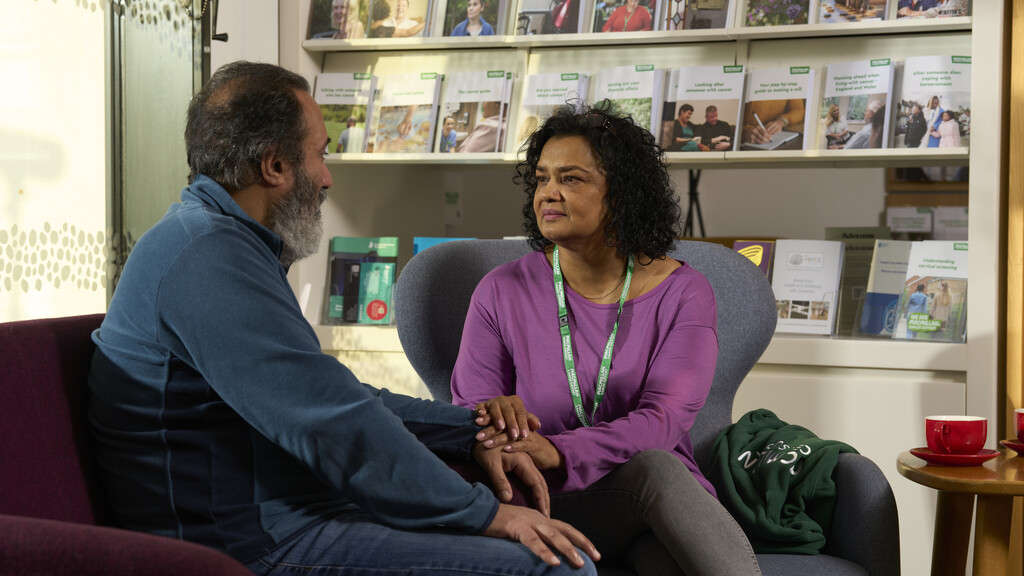
Will cancer ever be cured?
As we continue to look at what Macmillan’s place will be in health and cancer care in the future, Professor Richard Simcock explores one of the biggest questions of all.
The world around us is constantly evolving
Technology is advancing at speed. Better access to screening, new screening technologies, richer data and developments such as the HPV vaccination means cancer is being spotted earlier and even prevented in some cases.
We are getting better at curing some cancer consistently. But I don't think that's what this question is really asking.
People with cancer are living longer because of breakthroughs in cancer treatments. All of this means more people are living with cancer than ever before – but will we be able to harness these developments to cure cancer as we know it? And what do we mean by a cure for cancer?
Right now, there are many people with cancer who have treatment and their cancer shrinks or disappears. This is going to continue to happen, especially if we can catch cancer early and if everyone is able to access the same screening services and get the same experience.
There was a paper in the British Medical Journal earlier this year looking at the survival of women diagnosed with breast cancer in England from 1993 until 2015, showing that the number of people dying from that disease has dramatically shrunk over that period.
Cancer isn’t one thing, it’s a category
If we think about cancer as one disease, we're going to fail. Saying we're going to cure cancer is like saying we're going to get rid of all infections. We might get rid of scarlet fever, we might get rid of malaria but the thought that we get rid of a concept of a disease is not currently possible.
Cancer is a disease which evolves constantly and that evolution is what's going to cause us to not be able to cure all cases.
Consider the complexity of cancer. Barack Obama said in 2009 that we want to see cancer not exist in our lifetime.
And Richard Nixon, who most famously launched his war on cancer, said, “The time has come when the same kind of concentrated effort that split the atom and took man to the moon should now be turned towards conquering this dreaded disease.”
Except, if you were going to really make that analogy stand for cancer, Nixon would have to have said, “We're going to send someone to every star in the galaxy.”
Am I being pessimistic?
I'm not. I think we are going to slowly and steadily start to understand the way that cancer resists treatment and know more about the ways that we can overcome this resistance.
We are seeing some staggeringly good responses to immunotherapy, particularly in traditionally very poorly-responding cancers, such as lung and melanoma. No one knows yet if they're curable or not because we are pushing the boundaries further than we have ever gone. These are new frontiers for us all.
For cancer that is treatable but not curable, advances in treatment could transform cancer into a long-term health condition.
In addition, there is some justifiable excitement about vaccines. So yes, we will cure some cancers, but we won’t cure the concept of cancer.On top of advances in treatment, I’m hopeful that if we diagnose cancer earlier, and we already know we can successfully treat this particular cancer, we’ll cure more of these cancers.
To do that, we need to make existing screening programs equitable and accessible to all as well as developing new methods of screening. If we do what we do well equitably and for everyone, we'll cure more cancers.
In answer to my original question – I don’t believe we will ever cure all cancer, but in curing some cancers and in managing others much better, at least it will be something that is hopefully less feared. And I do think that's something that to aspire to, don’t you?
What's next?
As part of our work to transform Macmillan, we have set up teams of colleagues to tackle the big questions about cancer.
In early 2024, we will use the answers alongside other evidence to make the best possible decisions about how Macmillan should evolve.
By doing this, we will ensure we are providing the best support for people with cancer now and in years to come.
Visit Transforming Macmillan Together for the latest updates.
Read more
-
News and stories 10 Sep 2025In this blog, Gemma reflects on the impact Macmillan made last year ahead of the launch of Macmillan Cancer Support's Annual Report for 2024.
-
News and stories 03 Sep 2025Anthony Cunliffe, National Lead Medical Adviser at Macmillan, explains why more needs to be done to make cancer care fair.
-
News and stories 10 Jul 2025The Prime Minister launched the government’s long-awaited 10 Year Health Plan, outlining a vision to “bring the NHS closer to home.”






